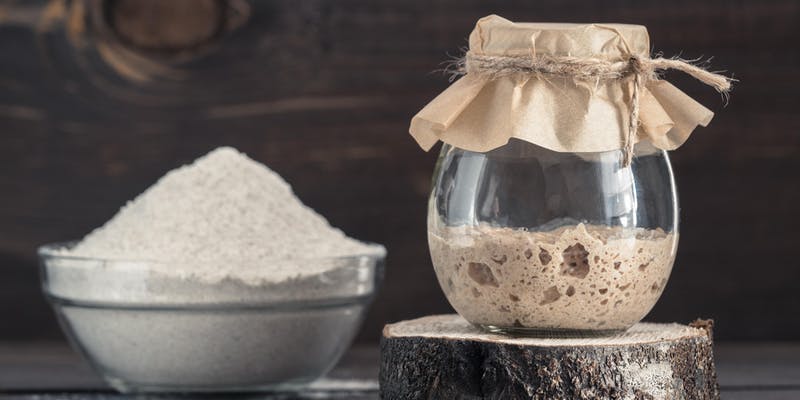January 22, 2019 – By Michael Schut

Focaccia
Darrold Glanville rapped his knuckles on the focaccia he had just pulled from the oven. He pointed out that he wasn’t familiar with that particular oven and that he didn’t have access to all his favorite ingredients.
He suspected the sourdough focaccia wouldn’t be his best.
Those of us in the class, though, weren’t buying it. This guy was good, an excellent baker, and he’d just coached us through the process of making and tending our own sourdough; perhaps most importantly, we knew the flour he used was something special.
The Flour
Darrold and his wife Marty operate the Sunrise Flour Mill in Northbranch, Minnesota. Their wheat is organic. Just as important, it would seem, is that the wheat is “heritage wheat.” Simply defined, heritage wheat has not been hybridized. (Much of the wheat grown around the world has been bred with other plants, such as Japanese grass, in order to make the plant easier to harvest.)
The Glanville’s motivation to find and grind organic heritage wheat varieties began with their search for grain that would not make Darrold sick. He had gone gluten free once his ailments became so debilitating that he eventually had to spend most of his time in bed or on the couch. Within months of eliminating gluten, Darrold felt great again, but missed good bread terribly. So the Glanvilles began milling their own heritage wheat and baking bread with their flour; Darrold found he was able to eat bread again—and pancakes, and scones, and focaccia, and pizza.
Gluten
Many of their thousands of customers are gluten intolerant, and yet find they can eat breads made from the flour ground at the Glanville’s mill.
Modern hybridized wheat makes them ill; organic heritage wheat does not.
How we bake bread, and what we bake it with—may not sound like something so elemental to the human experience that, if applied across agriculture, could be somehow “radical.” And yet:
- We find that what is healthy for soil and water (growing wheat organically) is healthy for us.
- We find that plants, in this case heritage wheats, which evolved in a certain place hold the nutrients that nurture the people in that very place.
- And, not surprisingly, the end result is something absolutely delicious.
So—maybe flour can be radical. Radical emanates from the Latin word radicalis, which simply meant “of or relating to a root,” and came to mean what is basic or fundamental. And it felt, to those of us in the “Baking with Sourdough” class held recently at Farm Table, like we learned something true about the roots of healthy food, healthy people, and a healthy planet.
Plus, we all left with sourdough starter, our own bag of organic heritage wheat, and plans to try our hand at baking with some pretty radical flour.
Check Out These Upcoming Events:
Mike Schut serves as the Senior Director of Programs and Community Partnerships at Farm Table Foundation.
